Nghe An still has 63.3% of communes, wards and towns that have not met legal access standards.
(Baonghean.vn) - According to statistics from the Nghe An Department of Justice, the whole province still has 304/480 communes, wards and towns that have not met the standards of legal access (accounting for 63.3%).
Among the 304 communes, wards and towns that have not met the legal access standards, there are 70 type I communes; 168 type II communes, 66 type III communes. In some mountainous districts, up to now, 100% of communes have not met the legal access standards such as: Ky Son, Que Phong, Quy Chau...
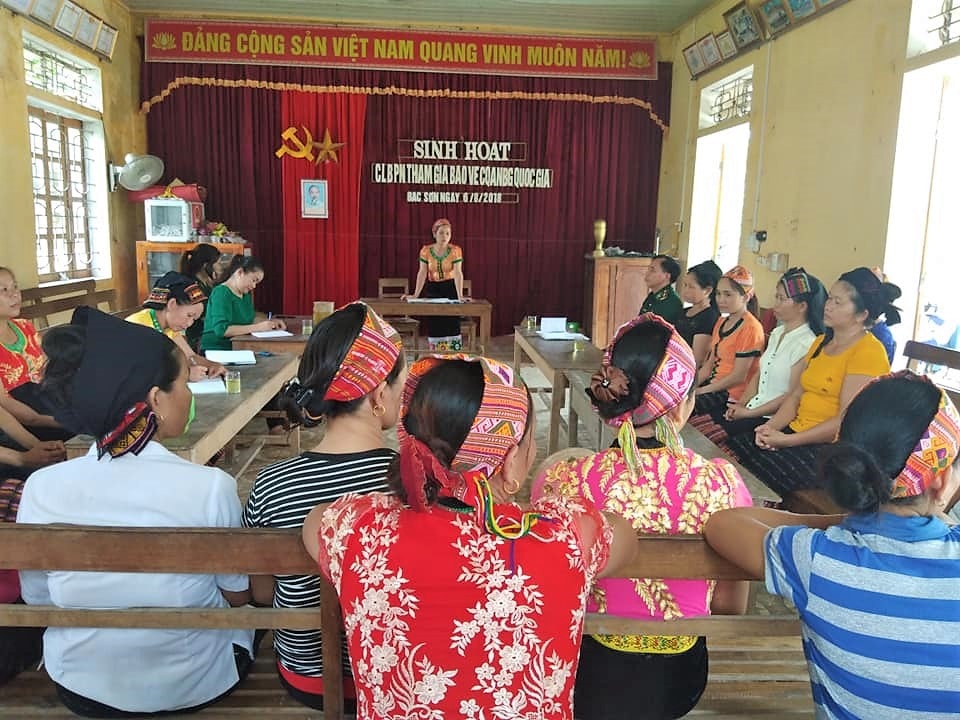 |
| The women's club participating in protecting the sovereignty and security of the border in Bac Son village (Mo Son commune) organized a specialized activity to prevent human trafficking crimes. Photo: Hung Phong |
The reason is that many communes have not met the 5 component criteria and 4 conditions according to Decision 619/QD-TTg of the Prime Minister, so they did not prepare documents, prepared documents late, or prepared documents but did not meet the requirements, so they were not recognized.
Some communes have not met the standards because during the year, officials were disciplined from warning and above. For example, in Dien Chau district in 2017, 39/39 communes and towns submitted documents to the District People's Committee to request recognition of communes meeting legal standards, but only 36/39 communes met the legal access standards (3 communes did not meet the standards, including Dien Thanh, Dien Ngoc, Dien My, because officials were disciplined). Or in Do Luong, 3/33 communes have not met the legal access standards, of which Giang Son Dong and Tru Son communes had officials and civil servants who violated the law and were disciplined.
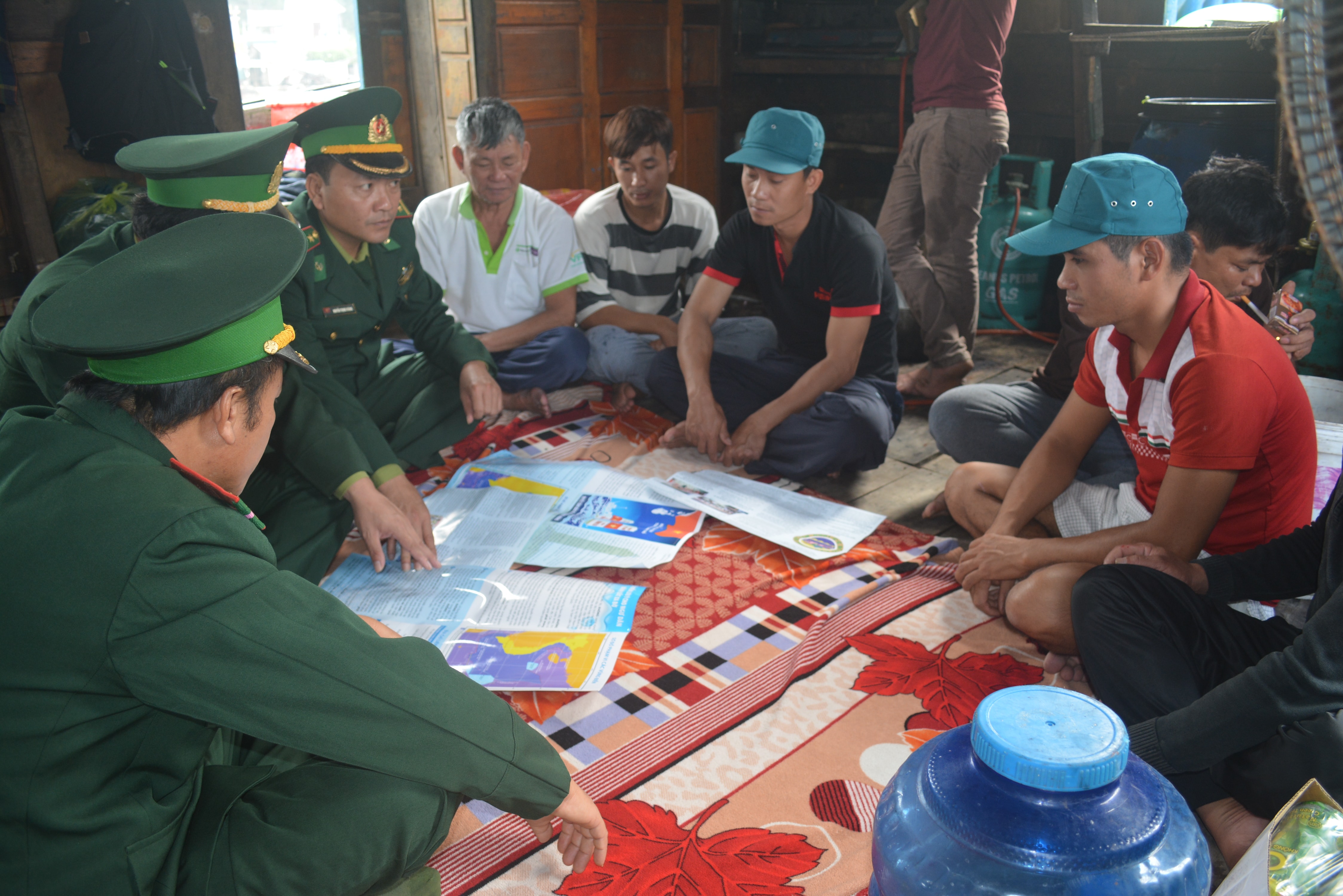 |
| Officers of Quynh Thuan Border Guard Station directly go to fishing boats to propagate and disseminate the law. Photo: Hai Thuong |
Some localities have achieved less than 80% of the maximum score in terms of satisfaction of organizations and individuals with the quality and attitude of service when performing administrative procedures, or one of the five criteria has achieved less than 50% of the maximum score. Many communes are far from the center, and the implementation of tasks to build communes that meet legal access standards is still limited, especially in mountainous areas.
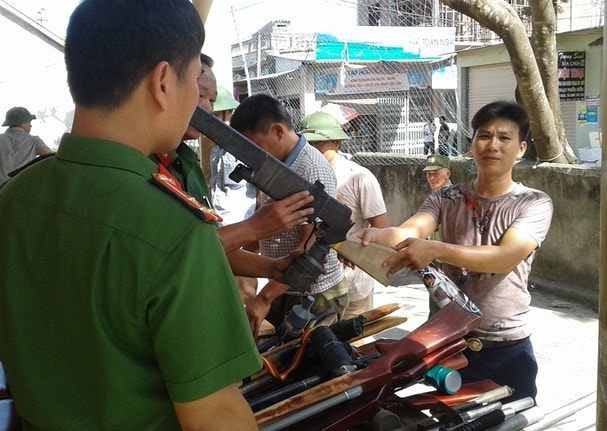 |
| Mobilizing people to voluntarily hand over homemade weapons. Photo: Document |
In addition, from practice after more than 1 year of implementation, the Department of Justice also recorded the feedback from localities on difficulties in the process of applying regulations and guidelines on building and evaluating communes that meet legal access standards (the Central Government's guiding documents do not provide specific instructions on building each criterion, some criteria are difficult to score. Staff officers do not fully understand the legal provisions).
Human resources and funding to ensure the construction of communes, wards and towns that meet legal access standards are still limited, especially in localities with difficult socio-economic conditions.
On May 8, 2017, the Prime Minister issued Decision No. 619/QD-TTg regulating the construction of communes, wards and towns meeting legal access standards. At the same time, "communes meeting legal access standards" was added as a component criterion of the National Criteria Set for New Rural Communes for the period 2016-2020. According to Decision 619, communes are recognized as meeting legal access standards when they meet:
- 5 criteria (total score of 100) include: Ensuring the implementation of the Constitution and laws (15 points); Implementing administrative procedures under the authority of the People's Committee at the commune level (30 points); Resolving administrative procedures in accordance with prescribed order, procedures, and time limits; Dissemination and education of law (25 points); Grassroots mediation (10 points); Implementing grassroots democracy (20 points).
- 4 conditions include: No criterion is below 50% of the maximum score; The total score of the legal access criteria must reach 90% of the maximum score or more for commune level I, 80% of the maximum score or more for commune level II and 70% of the maximum score or more for commune level III; During the year, no commune-level cadres or civil servants are disciplined with a warning or higher level for violating the law in performing official duties or must compensate for damages caused by illegal official duties.



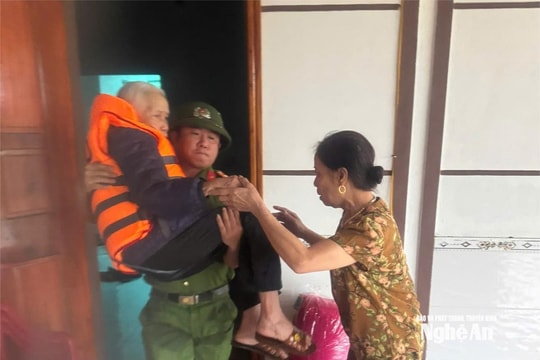

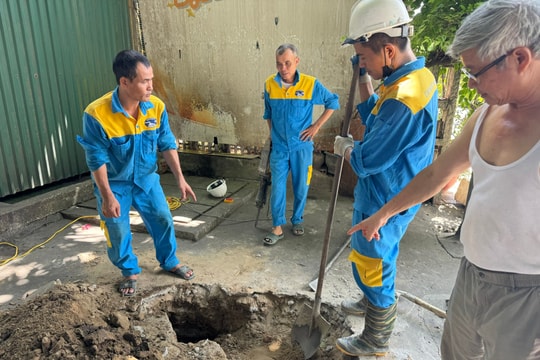

.jpg)
